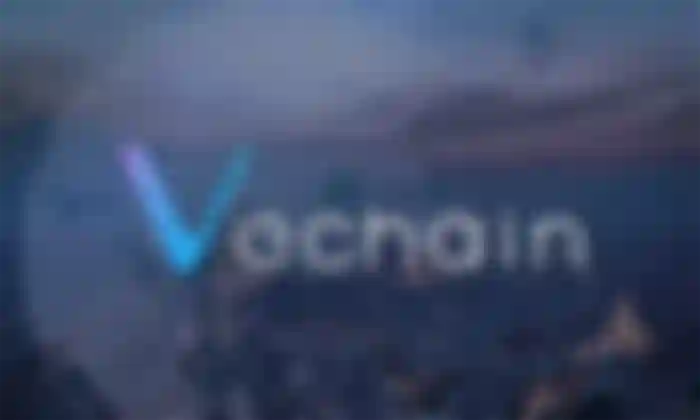VeChainThor is a public block-chain that derives its value from activities created by members within the ecosystem solving real world economic problems. The blockchain consists of a two-token system, the VeChain Token (VET), which will act as a store and transfer of value and VeChainThor Energy known simply as VeThor (VTHO), which is the gas of the VeChain ecosystem. The unique dual-token system significantly helps separate the cost of using the block-chain from market speculation, making the cost more predictable, stabilizing the cost.

The VeChain project was founded in 2015, in Singapore, by the company BitSe, as a product and service concept that can be used for the most diverse areas of industry. VeChain's target was to streamline chain management, business processes and information flow for complex supply chains through the use of distributed ledger technology (DLT).

How VeChain works?
The initial goal was to disrupt the supply chain industry by making data actionable and transparent by supplying complete information of goods along the whole value chain. As fake and counterfeit products are a global problem, whether branded clothing, medicines or wine, which will create huge losses to companies. The VeChain’s technology aims to solve the issue by supplying information for the origin of the product, transport, storage, and any other information about subsequent sales. The product will be allocated an unique identity or RFID chips that store and transmit all information on the block-chain at every stage of the transport to the end consumer. The RFID chip stores all necessary metrics and transfer them in real time to the block-chain and if incorrect information occurs within the supply chain, the cause of the error can be quickly located and eliminated. The VeChainThor block-chain uses a Proof of Authority algorithm to transfer and confirm information within the network. All users with VET tokens will automatically receive THOR tokens credited to their wallet.
Unlike many other projects in the market, VeChain is a trend-setting project that offers an unbelievable number of application possibilities, offering opportunities and potential for companies, whether is Wine tracking, insurance industry, pharmaceutics or the communication sector. The meta-transaction features native to the VeChain Thor blockchain’s core protocol, such as multi-party payment, multi-task transaction, controllable transaction lifecycle, transaction dependency are enhancing the sale sector by making VeChain more user-friendly for enterprise adoption.
VeChain Partnerships
VeChain has linked to strategic partnerships since the beginning, many companies joined in order to help the project achieve his goal. The accounting firm PricewaterhouseCoopers (PwC), which is also incubating VeChain, was one of the initial supporters of the project. The Chinese firm Jiangsu Electronics contributed to the development of the RFID chips for use on its platform and Renault for its manufacturing operations. The Government uses VeChain as technology partner to develop an economic zone called Gui'an
Due to its compatibility and wide range of applications, VeChain has been able to establish a number of prominent partnerships, such as Japan’s largest telecommunications provider to improve data service capacity in the area of traceability and People’s Insurance Company of China, one of the world’s largest insurance companies
VeChain has entered into a classic cooperation with the Chinese retailer Waigaoqiao Direct Imported Goods (DIG), which also imports wine, and up to date, more than 10,000 bottles of wine have been scanned and tracked with a VeChain-enabled RFID chip., making it possible for end consumers to understand exactly from which country the wine comes and how long it has been stored in which place in the world.

Other industry heavyweights cooperating with VeChain include BMW, Walmart, PWC, BitOcean and Kühne + Nagel. BitOcean provides an ATM based solution for buying and selling cryptocurrencies, being the first cryptocurrency exchanges to become fully licensed by Japan’s Financial Services Authority (FSA). They will work together with VeChain to allow users to buy and sell VET using physical ATMs, starting in Japan and China.
D.I.G is a government-owned wine importer, responsible for over 30% of China’s wine imports. An estimated 30,000 counterfeit wine bottles are sold every hour in China. VeChain will be tasked to authenticate and trace winery data from the producers, through the supply chain and eventually to the consumer using smart NFC chips in the wine bottles, to stop this counterfeiting market.
Kuehne + Nagel is the worlds largest global freight forwarder, accounting for nearly 15% of the world’s air and sea freight business by revenue. K+H has 1336 offices spread out across 109 companies and has 75,000+ employees. They will use Vechain’s block-chain technology to smartify parcels and assets, especially luxury goods, by furnishing them with a chip containing a private key that reflects ownership information on the block-chain.
Walmart is an American multinational retail corporation famous for its chain of hypermarkets. Walmart currently is the largest grocery retailer in the US and in the top five in China. Using the VeChainThor block-chain, Walmart China launched the Traceability Platform. Products from 23 different product lines are tracked using IoT and block-chain from source to the retail stores, offering customers a new level of trust and confidence in the products they buy. Walmart’s goal is to have 50% of all packaged meat, 40% of vegetables and 12.5% of seafood tracked using the VeChain Powered Platform by the end of 2020.
VeChain (VET) and VeThor (VTHO)
Both VET and VTHO are essential for the VeChainThor blockchain to function properly, because without VET, there is no VTHO generated. Without VTHO, there is no way to pay for VET transactions. The two-coins-system is making the transaction fees to remain stable, compared to a single coin system.

VeChain (VET) current value is around $0,0145, with an all-time-high in July 2018, when reached $0,02638. The all-time-low was recorded in March 2020, when the price dropped to just $0,00192.
Each VET will create 0.00000005 VTHO with every block that is created, every 10 seconds, resulting 0.000432 VTHO per day generated by each VET. This is the default VTHO generation rate, which can increase, but not decrease over time. After use, 70% of the VTHO gets destroyed, while the remaining 30% is paid out to the Authority Node as a reward for validating the transaction.
The VeThor Token (VTHO) has a minimal value of $0,00065044. His all-time-high was $0,0468 while the all-time-low was in 2018 at $0,000152. The VTHO is needed to pay for writing data to the VeChainThor block-chain and the amount of VTHO needed for each transaction depends on the size of the data you want to send. A simple VET transaction costs you around 30 VTHO, while sending a transaction filled with data to a smart contract can cost up to 1000 VTHO. The token is generated by holding VET. I got a small share automatically in the Binance wallet.

VeChain Governance
VeChain governance model aims transparency and operational efficiency in order to enables continual and rapid innovation, while resulting in consensus and decisions that balance the views of all stakeholders in the ecosystem. The community-elected Steering Committee facilitates decision making and execution supported by the on-chain governance mechanism. The system makes it easy to propose, approve and execute changes and updates.

The well governed foundation is the key to VeChain's longevity, growth and stability. Making an actionable governance system, that matches the identity we envision for the VeChain ecosystem. At the core of its governance structure, the VeChain Steering Committee, oversees various functional committees and represents the balanced interests of the VeChainThor blockchain stakeholders as a whole. Currently, the community-elected committee has seven members, Renato Grottola, George Kang, Daniel Kelman, Sunny Lu, Jay Zhang, Peter Zhou and Margaret Rui Zhu.

Conclusion and personal views
With the global adoption of the VeChain block-chain and the growing numbers of partnerships, the need for VTHO will rise. The future of retail will implement smart shopping, where customers will track their clothes, food, or wine from the production line, throughout the delivery process, until will reach the customer house. This will reduce the amount of fake merchandise.
With the implementation of the VeChain block-chain, the demand of VET will rise as well, mainly for VTHO generation and trading. The project and concept is synonym with progress, because the current trend is improve everyday experience, such as online shopping, parcel delivery or gastronomic and wine experiences.
Got a nice little stash on Binance Savings, which grows bigger and bigger every day.

Links and referrals:
Coinbase Earn - Up to $59 Compound (COMP)
Coinbase Earn - Up to $52 worth of Orchid (OXT)
Coinbase Earn - Up to $50 worth of EOS
Amazon author page: PV Mihalache
Quality Faucets: Stakecube (20 daily faucets)
Tier 4 referral system: Horizen (ZEN) & ZCash from PipeFlare & GlobalHive
FreeCryptos Gang: DASH, TRX, ETH, ADA, BNB, LINK, NEO & BTC
Coinpot Gang: DASH, BCH, DOGE, LTC, BTC & BTC2
Join Lbry.tv to earn watching videos & Publish0x to earn while you read
I use Brave and Presearch to earn BAT and PRE while surfing online?








Great information about this article my Dear friend